
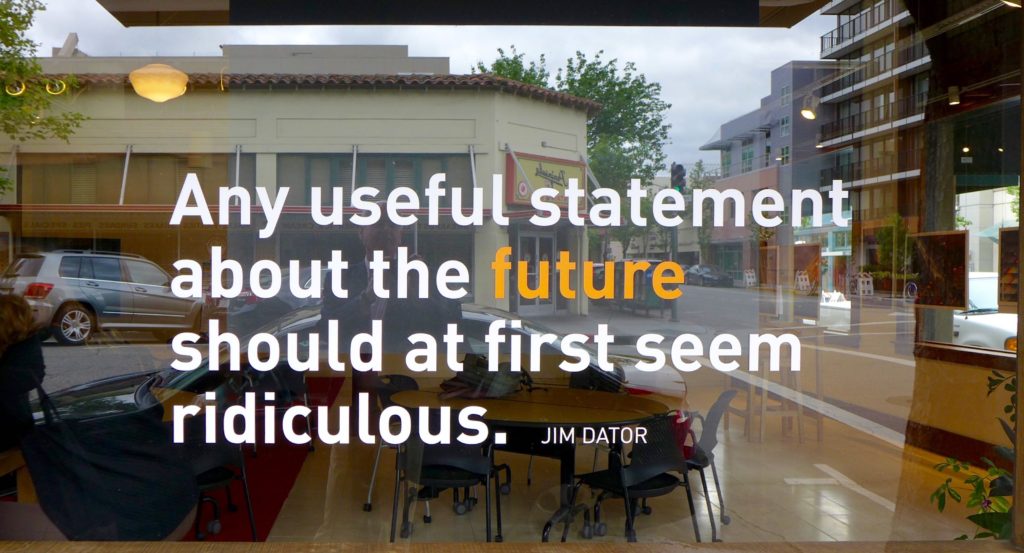
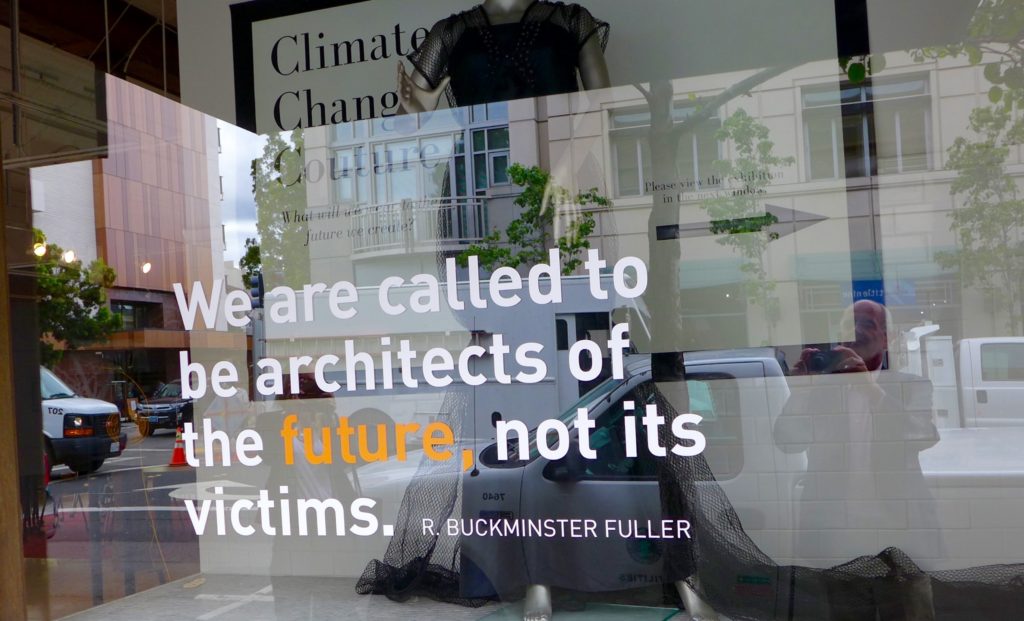
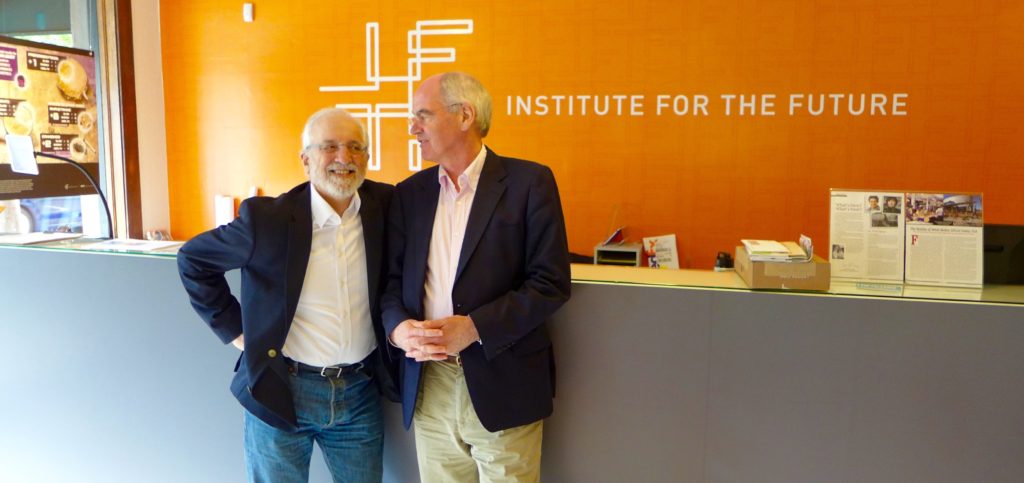

A day spent oscillating between San Francisco, Palo Alto and Sausalito (the subject of a separate post). The morning kicked of with a visit to Hampton Creek Foods, whose motto is “What would it look like if we started over?” Their product range started with plant-based substitutes for egg and egg-based food ingredients.
We were met by their Chief Happiness Officer, a large Golden Retriever. One interesting part of the conversation was around language – and how they avoid mentioning the fact that their products are vegan/vegetarian, even thought they are. This was a theme we encountered often during our California trip.
Then across to Palo Alto for a session with Marina Gorbis, Executive Director of Institute for the Future. Have long admired their work, back to the days of Paul Saffo’s time there, and it was great to catch up on some of the work they are now doing. Intriguing to dig a bit deeper into their 10-year forecasting cycle.
Among other things, Marina described the multiplicity of cultures in the Silicon Valley area, from the tech-obsessed through to the counter-cultural and humanistic. And what is striking is how these worlds can blur, as in people like the late Steve Jobs.
We also discussed the critical role of investigative reporting, with the Panama Papers, deservedly, getting a good deal of attention in the media at the moment.
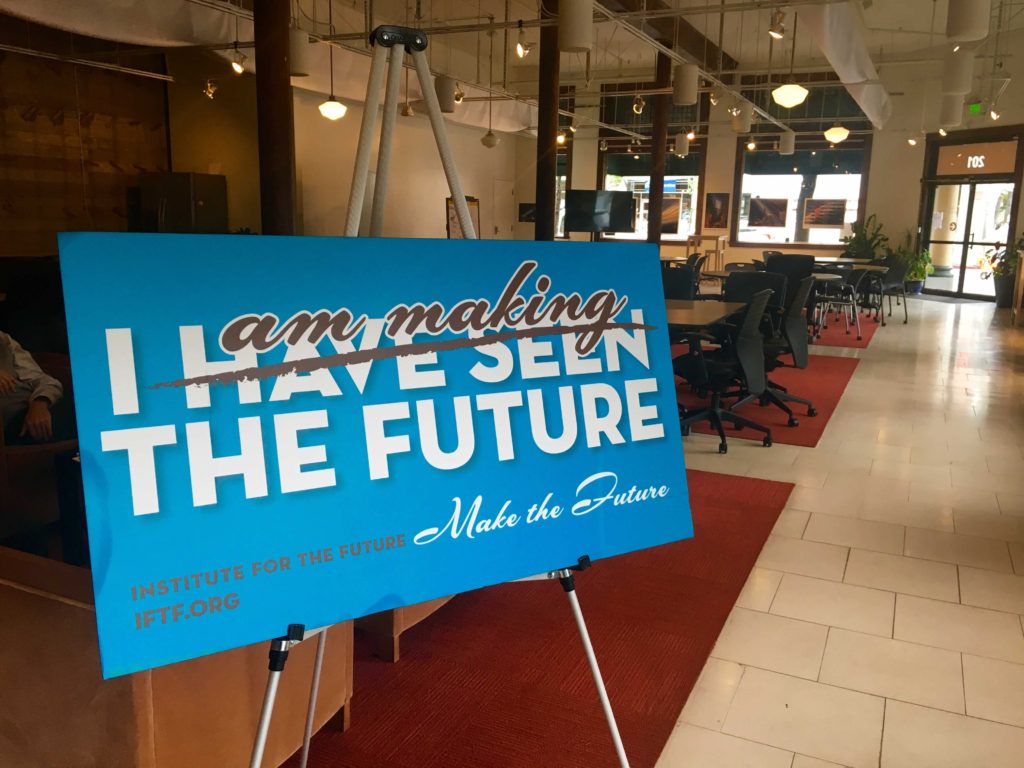
Then into a great session with Gil Friend, who I have known and admired for many years – both at Natural Logic and now in his role as Chief Sustainability Officer at the City of Palo Alto. He has introduced us to a number of the people we are seeing on this trip. I don’t envy him the politics in his current work, but he is part of a growing movement of CSOs and similar in the world of local government. He referenced the work of the Urban Sustainability Directors Network (USDN.org).
As an example of the sort of dilemmas that people like him have to wrestle with, he noted that if Palo Alto pushes ahead with its plans to ensure the overwhelming majority of cars in the area are electrically-powered, companies like Tesla will do well – but poorer people (for example gardeners and maids) who can’t afford electric vehicles and have to commute in long distances will be disadvantaged.
We didn’t discuss it, but maybe the EV drivers will respond by buying robots to do the house and garden?
Then back to San Francisco for a session with Kavita Gupta and Chantal Buard of Amplifier Strategy. We met at The Battery, here it was interesting to hear about the evolving social innovation platform, Battery Powered. A great initiative – and one wonders how much of a following wind it may have been given by recent protests against companies like Google, as captured in Douglas Rushkoff’s book Throwing Rocks At The Google Bus.
His sub-title nicely (if uncomfortably) distils the issue: ‘How Growth Became the Enemy of Prosperity.’
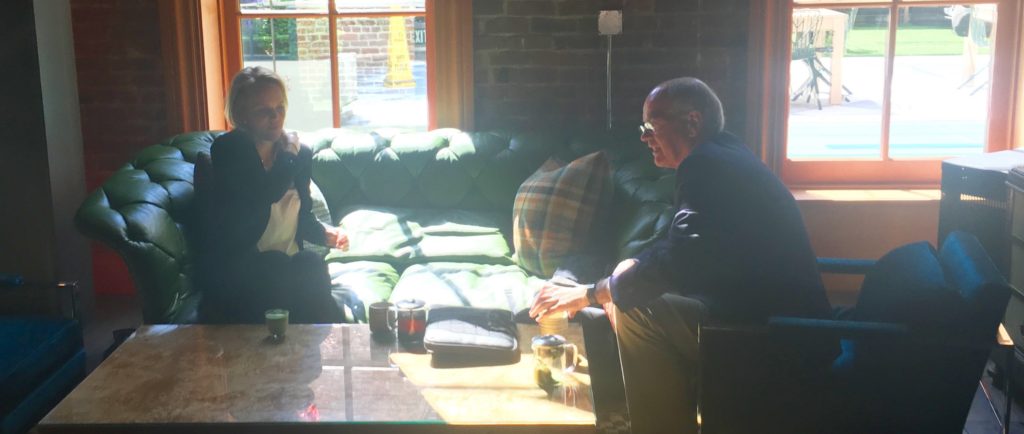

Leave a Reply